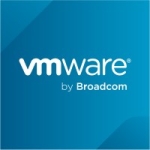Oracle Exadata is a flash disk, so my company's primary use case is achieving target performance on the database level.
What I like most about Oracle Exadata is its smart scan feature.
I also like that it supports higher capacities and it's high-performing, so my company can use Oracle Exadata for massive databases.
Oracle Exadata is one of the best products of Oracle, with the best engineering.
One small area for improvement in Oracle Exadata is integration, particularly at the consolidated application level.
Additional features I would like to see in Oracle Exadata in its next version include a cloud interface and GUI.
I have around one year of experience with Oracle Exadata, and I'm still working with it.
Oracle Exadata is a nine on a scale of one to ten, stability-wise.
Oracle Exadata scalability is a nine out of ten.
The initial setup for Oracle Exadata is straightforward and user-friendly because it has a great feature called OneCommand, which makes installation automated.
Both in-house and vendor teams implemented Oracle Exadata.
I'm giving Oracle Exadata five out of ten in terms of pricing. Its price could be lower.
Compared to other solutions, Oracle Exadata is more valuable because it has excellent features and it's a one-box solution.
I've worked with different versions of Oracle Exadata, such as X7, X8, and X9.
My customers use Oracle PCA (Private Cloud Appliance) for Oracle Exadata deployment. Banks use a private cloud, not a public cloud.
My company is a platinum partner of Oracle, with sixty to seventy customers using Oracle Exadata. In terms of maintenance, forty to fifty technical staff handle the maintenance for all customers.
My company is an Oracle vendor working with customers on implementation and deployment projects. The company is a reseller of Oracle Exadata.
I'm rating Oracle Exadata as eight out of ten.


















